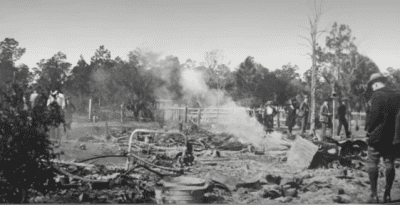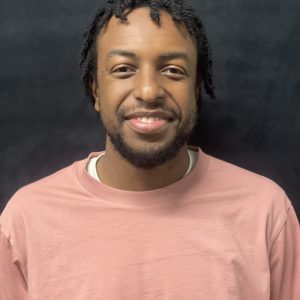The descendants of the Rosewood massacre recently took a week to remember the 100th anniversary of the horrific race-motivated tragedy. From Jan. 8-14, the University of Florida hosted the commemoration to honor eight families impacted by the massacre.
The week’s events included a showing of John Singleton’s 1997 film Rosewood, the Rosewood docudrama, and forums exploring where does Black America go for the next 100 years, with speakers including pastor Jamal Bryant, civil rights attorney Ben Crump and attorney Jonathan Barry-Blocker.
Rosewood descendants and survivors became the first Black Americans to receive reparations from a legislative body in America. Recently, Gregory Doctor, cousin of Arnett Doctor, the descendant who led the fight for reparations, spoke to rolling out about the tragedy and keeping the story alive.
What happened in Rosewood, Florida 100 years ago?
I am a direct descendant of Rosewood, Florida. My ancestors owned that entire town. Collectively, there were eight families in the Rosewood town and, collectively, between 15 and 22,000 acres of land. That’s a lot of land. Some of the family members had 2,000 acres per family, some had 3,000 acres, regardless, that was a lot of land. It was a small, progressive Black village. They had a sawmill, even the No. 2 pencil came from the Rosewood trees … and that provided about 80 percent of the pencils throughout the United States.
In January 1923, there was a lady who lived in the area whose name was Fannie Taylor. She was having a relationship with a lover, but she was actually married. Her and the lover got into an altercation, he beat her up and she had to justify her bruises. So naturally, a Black man did it.
That set the tone, but they were already heated because the Blacks were living better than most of the Whites in that area. Some of the Blacks had two-story homes, pianos, so that was a problem.
Did Black man accused of beating Taylor live in Rosewood?
Yes, he was a family member. So, the mob came in and went on a killing spree for seven straight days from Jan. 1 to Jan, 7. The first person to be killed was Sarah Carrier, and she was practically the midwife for most of the people in that community. They also gang-raped one of my family members, and they also made one of my family members dig his own grave and killed him in front of his wife and kids … the state of Florida will only admit six people got killed. That was not true. It was probably between 150 and 200 people, there were a lot of mass graves.
On the seventh day, the White brothers sent a train in to get the women and children to safety, but they said no men could ride on the train. So, the train went to Archer and Gainesville, and most of the family members ended up in Gainesville.
Do you think every Black American deserves reparations?
Everyone should get reparations. We are a prime example. When the bill was passed, it gave us an education grant, so it made it for some descendants to go to college. We have teachers all the way to doctors because of the Rosewood reparations bill.

















